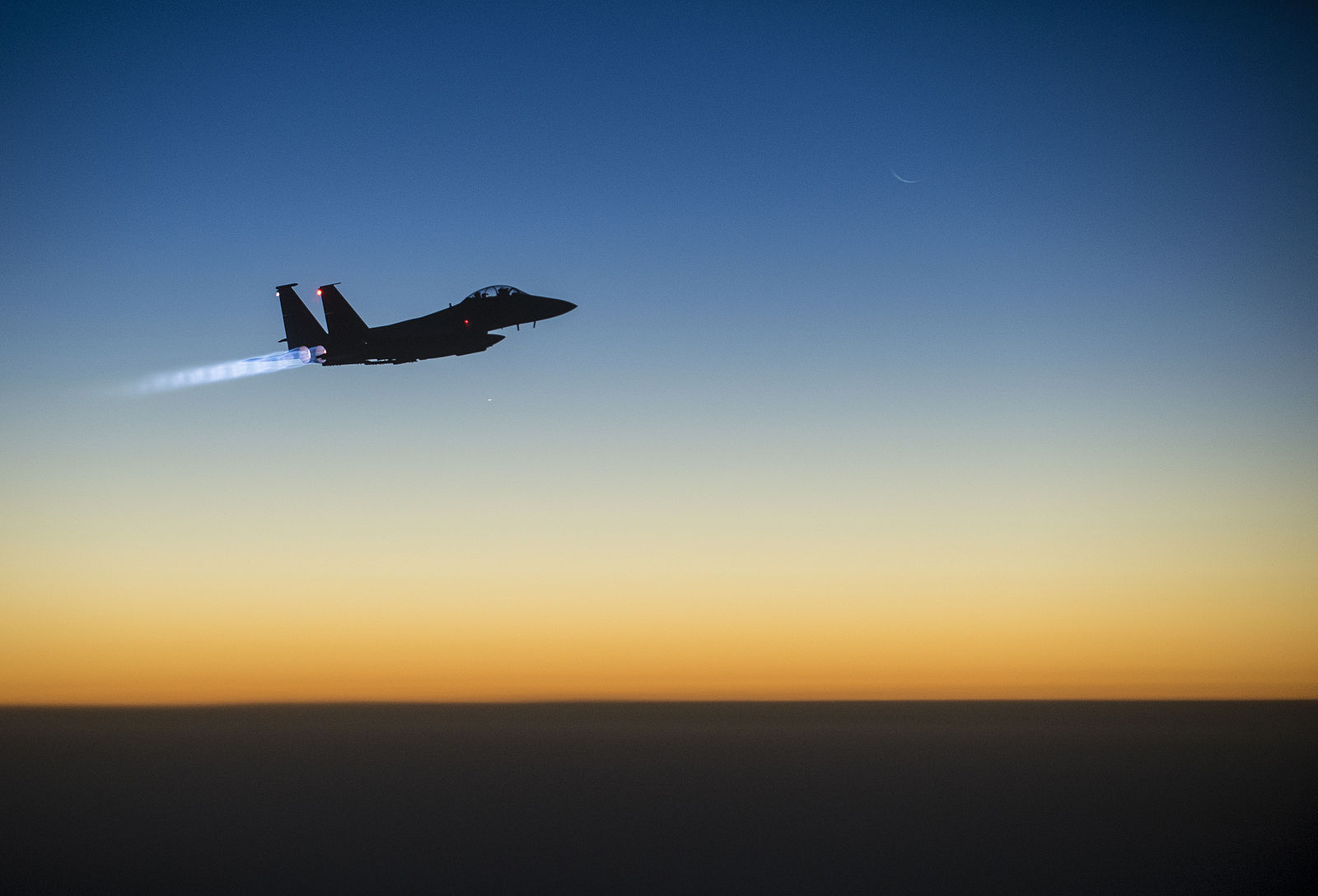This article originally appeared on the ABTS blog on May 4, 2018.
Syria Brief – May 2018
News
The United States bombs Syria with the support of Britain and France. Iran interferes in Syrian affairs. The United Nations Security Council meets to deliberate on the Syrian regime’s attacks on Duma. Such is the news of the region—Syria, Lebanon, and the wider Middle East.
US President Donald Trump blamed Russia and Syria for allegedly using chemical weapons in an attack on the Syrian city of Duma in Eastern Ghouta, saying: “We are very concerned about these practices, because it is a matter of humanity.” Based on this humanitarian motive, the US launched missile strikes and destroyed three sites suspected of being linked with the Syrian chemical weapons program, following the alleged attack. At the same time, while the United States received about 15,479 Syrian refugees by the end of the previous administration in 2016, according to US State Department statistics, the number had dropped to approximately 11 Syrian refugees by the end of April 2018.

A statement issued by the European Union indicates the existence of proof that Syrian government forces used chemical weapons in its bombing of the city of Duma, calling for “an immediate response from the international community.” However, the Organization for the Prohibition of Chemical Weapons declared that its inspectors were unable to access Duma to investigate the alleged attacks. Furthermore, just hours after more than 100 cruise missiles fell on Syria, Assad proclaimed, “This aggression will only increase the determination of Syria.”
According to Bloomberg News, the attack by the United States, Britain, and France destroyed military sites and research facilities in Syria, but failed to affect the military capabilities of Assad or deter Russian and Iranian soldiers or the fighters of Hezbollah. For its part, Paris strongly condemned the Syrian attack and the French Foreign Ministry confirmed that “Paris will take full responsibility” for responding to this chemical attack.
The reactions of Arab countries to the American-French-British strikes targeting specific locations in Syria varied between support, opposition, and abstention.
Analysis
The three-party bombing of Syria did not build on any proof of the government’s use of chemical weapons, which leads us to think that it might have been driven by unrevealed motives. For example, we did not hear in Trump’s warning speech on Syria any clear demands for the Syrian president to step down for failing to respect the agreed boundaries of what constitutes “humane” weapons in the Syrian war.
There is no doubt that the American administration must have achieved some important goals that served its national interests in the Middle East when it bombed Syria, such as the consolidation of its control and influence in Syria, the establishment of boundaries and limitations on the Syrian army’s use of weapons, and the prevention of Russia from making unilateral decisions on Syria. The bombings may also have aimed at providing reassurances to its allies, France and Britain, as well as to fulfill more internal goals, such as the administration’s need to demonstrate to its constituency its willingness to confront Russia.
The nature of the conflict in Syria has changed. The goal is not “to bring down the regime” anymore, as it was at the beginning of the war. The realities on the ground in Syria have become difficult to control, particularly for western powers. Strategic priorities have therefore shifted to a concern for redrawing lines of influence and control in the fields of security, economics and politics. Given that the use of chemical weapons remains the easiest basis for muscle flexing, threatening, and raising demands, Syria will remain for the time being at the mercy of all the various powers that each have their own interests within its borders.
Theological Reflection
In light of crushing wars and diverse political conflicts, one needs to examine the evidence and to develop a position from as neutral a place as possible. The local church in Syria currently finds itself pulled between complex political demands of loyalty and in the midst of violent military confrontations between various parties to the conflict. Each party is working to serve its own interests, interpreting facts from its own perspective. There is, therefore, no wisdom in taking sides with one party or the other to the conflict, for these will continue to shift in line with future political interests and alliances. The head and leader of the church is Christ, and to him, the church owes its allegiance. From him, the church draws its mission, direction, and calling. He meets its needs and shepherds it so that it lacks in nothing. On this basis, it would be wise for the church to focus its priorities on the human and humanitarian aspects of the conflict, as Christ touched the leper, as he fed the crowds, and as he raised Lazarus. The church in Syria is already mired in human tragedy. And in light of constant political change, the better theological and ecclesiastical positioning is for the church to adopt political neutrality, to hold on to its humanitarian role, and to proclaim its sole and total allegiance to its Lord and Christ. The global church, for its part, can support the local Syrian church by raising its voice against all abuses and excesses that affect the rights of any human being and conflict with biblical truth.
